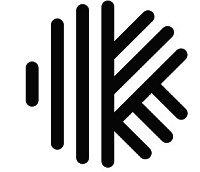Description

Easy Redmine

Karbon

Tracked for Basecamp
Comprehensive Overview: Easy Redmine vs Karbon vs Tracked for Basecamp
Easy Redmine
a) Primary Functions and Target Markets
Primary Functions: Easy Redmine is a comprehensive project management tool designed to enhance the functionality of Redmine, an open-source project management software. It offers advanced features including resource management, time tracking, task scheduling, Gantt charts, and financial management. Easy Redmine aims to provide a versatile platform for managing projects of various scales, from small teams to large enterprises.
Target Markets: Its primary market includes businesses and enterprises looking for an enriched version of Redmine. The tool is particularly appealing to industries such as IT, engineering, manufacturing, and any organization requiring precise project management capabilities.
b) Market Share and User Base
Easy Redmine, being an enhanced version of an established open-source tool, serves a niche market looking for more advanced project management solutions. While it has a loyal user base, its market share is smaller compared to giants in the project management software space like Jira and Asana. Easy Redmine users typically come from existing Redmine communities or from businesses looking to upgrade their project management toolset.
c) Key Differentiating Factors
- Customizability: Built on the Redmine platform, Easy Redmine offers extensive customization possibilities to suit a variety of industry-specific needs.
- Integration Capabilities: It integrates seamlessly with existing Redmine projects and plugins, offering a smooth transition and enhanced functionality.
- Advanced Features: Includes features like resource management and project finance, which are less common in other project management tools.
Karbon
a) Primary Functions and Target Markets
Primary Functions: Karbon is designed as a collaborative practice management platform for accounting firms. It facilitates workflow, communication, task management, and email collaboration within accounting teams. The platform's goal is to provide a single place for managing client work and firm operations.
Target Markets: Karbon primarily targets accounting firms, from small practices to large firms, looking for tools to streamline their operations and improve collaboration across teams.
b) Market Share and User Base
Karbon has carved out a niche in the accounting industry and is recognized as a leading solution for practice management within this sector. Its user base is primarily composed of small to mid-sized accounting firms. While not a large player compared to general project management tools, Karbon holds a significant share within its specific accounting niche.
c) Key Differentiating Factors
- Industry Focus: Specifically designed for accounting firms, offering tailored features for managing client work and internal processes.
- Integrated Email Management: Allows users to manage emails within the platform, enhancing efficiency and team collaboration.
- Workflow Automation: Provides accounting-specific workflows and automation that cater to the repetitive nature of accounting tasks.
Tracked for Basecamp
a) Primary Functions and Target Markets
Primary Functions: Tracked for Basecamp is an add-on tool designed to supplement the Basecamp project management platform with time tracking and reporting capabilities. It provides insights into how time is spent across various projects and tasks.
Target Markets: The primary market includes existing Basecamp users who require detailed time tracking and reporting functionalities that are not natively available in Basecamp. This includes freelancers, small businesses, and teams that use Basecamp for project management but need additional tracking capabilities.
b) Market Share and User Base
Since Tracked is an add-on for Basecamp, its market share is inherently tied to the overall user base of Basecamp. It targets a subset of Basecamp users with specific needs for time tracking. Tracked does not independently hold significant market share outside of its presence as a Basecamp enhancement.
c) Key Differentiating Factors
- Integration with Basecamp: Designed specifically to integrate seamlessly with Basecamp, enhancing its native capabilities without the need for switching to a different platform.
- Focus on Time Tracking: Provides detailed time tracking and reporting, which are not key features of Basecamp itself.
- User Simplicity: As an add-on, it is built to be simple and intuitive for existing Basecamp users, ensuring that it complements rather than complicates their existing workflows.
In summary, Easy Redmine, Karbon, and Tracked for Basecamp each serve specific needs within the realm of project and practice management, with distinct target markets and functional focuses. Their differentiation lies in the unique features they offer, the specific industries they serve, and how they integrate with or enhance existing platforms.
Contact Info

Year founded :
Not Available
Not Available
Not Available
Not Available
Not Available

Year founded :
2019
Not Available
Not Available
France
Not Available

Year founded :
Not Available
Not Available
Not Available
Not Available
Not Available
Feature Similarity Breakdown: Easy Redmine, Karbon, Tracked for Basecamp
To compare Easy Redmine, Karbon, and Tracked for Basecamp, we'll analyze their core similarities, differences in user interfaces, and unique features. As of my last update, here's a breakdown:
a) Core Features in Common
Task Management:
- All three tools support task creation, assignment, and tracking to help teams organize their work.
Collaboration Tools:
- They provide features for team collaboration, such as shared task boards or project spaces where team members can communicate and collaborate.
Progress Tracking:
- Built-in tools for tracking task progress, including deadlines and priority setting, are common in these platforms.
Integration Support:
- Each platform offers integration options with other tools and services to facilitate seamless workflows.
b) User Interface Comparison
Easy Redmine:
- UI Style: Comprehensive and feature-rich, Easy Redmine offers a detailed and somewhat complex interface. Its design prioritizes functionality, which can make it robust but also potentially overwhelming for new users.
- Usability: Suitable for users who need access to a wide range of project management features in one place. It may require a slight learning curve for optimal use.
Karbon:
- UI Style: Offers a modern, clean interface focused on team collaboration and communication, reminiscent of email workflows.
- Usability: Simplified for collaborative tasks, making it accessible for users who are familiar with email interfaces and prefer streamlined designs.
Tracked for Basecamp:
- UI Style: As an add-on for Basecamp, it inherits Basecamp’s minimalist and user-friendly design ethos. Tracked’s features are integrated to be non-intrusive and intuitive.
- Usability: Geared towards existing Basecamp users, it provides ease of use and simplicity while adding enhancements to Basecamp’s core functionalities.
c) Unique Features
Easy Redmine:
- Resource Management: Offers comprehensive resource and finance management tools, including Gantt charts and time-tracking features.
- Customization Options: Highly customizable, allowing businesses to tailor the tool according to specific project needs.
Karbon:
- Email Integration: Integrates deeply with email clients, allowing users to manage tasks directly from their inbox, which is particularly appealing to teams heavily reliant on email communication.
- Workflow Automation: Provides robust automation tools to streamline routine processes within teams focused on client work.
Tracked for Basecamp:
- Seamless Basecamp Integration: Optimizes Basecamp users' experience by enhancing time tracking without disrupting existing Basecamp workflows.
- Simple Time-Tracking: Offers straightforward, easy-to-use time-tracking features, making it a preferred choice for Basecamp-focused teams needing this specific functionality without switching platforms.
These observations provide a foundational understanding of each tool's strengths and how they might cater to different project management needs. For the latest updates and specifics, checking directly with the provider or accessing current user reviews and demos is advisable.
Features

Not Available

Not Available

Not Available
Best Fit Use Cases: Easy Redmine, Karbon, Tracked for Basecamp
To understand the best fit use cases for Easy Redmine, Karbon, and Tracked for Basecamp, it’s essential to analyze their core functionalities, target industries, and the needs they address for businesses and projects.
a) Easy Redmine
Types of Businesses or Projects:
- Complex Project Management: Easy Redmine is particularly suited for businesses and projects that require detailed project management capabilities, such as Gantt charts, WBS (Work Breakdown Structure), and detailed resource management.
- IT and Engineering: Firms engaged in IT, engineering, and construction often benefit from its robust features that handle complex project planning and monitoring.
- Medium to Large Enterprises: Its scalability makes it a good fit for medium to large enterprises looking for a comprehensive project management solution that can integrate different departments and processes.
Industry Verticals / Company Sizes:
- Manufacturing and Construction: Large projects that require detailed planning and resource allocation.
- Technology and Software Development: Managing numerous interdependent projects or agile development practices.
- Health and Education: Organizations that need to track numerous ongoing projects with various stakeholders and dependencies.
b) Karbon
Scenarios for Preferred Use:
- Professional Services Firms: Karbon is designed with accounting and professional services firms in mind, offering capabilities for managing client work, communication, and task delegation within teams.
- Remote Work Environments: With its emphasis on collaboration and visibility over distributed tasks, it’s ideal for teams working remotely.
- Workflow Automation and Email Integration: Businesses seeking seamless email integration and workflow automation would find Karbon useful, as it streamlines communication and task management.
Industry Verticals / Company Sizes:
- Accounting Firms: Specifically tailored to cater to accounting practices with its client-centric task management.
- Consultancies and Legal Firms: Service-oriented businesses that handle client projects requiring regular communication and updates.
- Small to Mid-sized Companies: Companies looking for structured communication and task transparency among small to mid-sized teams.
c) Tracked for Basecamp
When to Consider Over the Other Options:
- Basecamp Users: Tracked for Basecamp is an add-on designed to enhance Basecamp’s capabilities, particularly for time tracking and reporting, making it a logical choice for existing Basecamp users.
- Time-Sensitive Projects: Teams that need detailed time tracking for project billing or productivity analysis.
- Simple Task Management Needs: Organizations with a straightforward project management need that want to add a layer of time and task tracking without switching to a more complex system.
Industry Verticals / Company Sizes:
- Creative Agencies and Freelancers: Basecamp’s flexibility, combined with Tracked’s time tracking, suits creative professionals managing multiple clients and tasks.
- Small Teams and Startups: Startups and small businesses that use Basecamp for its ease of use but need additional reporting capabilities.
- Event Planning and Design Projects: Projects that benefit from simple coordination and measurable time budgeting.
d) Catering to Different Industry Verticals or Company Sizes:
-
Easy Redmine: Best for industries that deal with complicated, interdependent projects needing extensive planning and resource management. Suitable for larger enterprises or sub-divisions within large corporations.
-
Karbon: Serves professional service firms looking for efficient task management and communication within team structures. Ideal for small to medium-sized client-oriented companies.
-
Tracked for Basecamp: Enhances Basecamp’s straightforward task management for projects requiring meticulous time tracking, fitting smaller creative firms or individuals comfortably.
Each of these tools serves a niche within the project management ecosystem, offering capabilities that align with specific types of projects, business needs, and organizational structures. Understanding the unique strengths of these solutions helps businesses choose the right tool for optimizing their project workflows.
Pricing

Pricing Not Available

Pricing Not Available

Pricing Not Available
Metrics History
Metrics History
Comparing undefined across companies
Conclusion & Final Verdict: Easy Redmine vs Karbon vs Tracked for Basecamp
Certainly! Here's a detailed conclusion and final verdict on Easy Redmine, Karbon, and Tracked for Basecamp, including an evaluation of which product offers the best overall value, the pros and cons of each, and recommendations for users trying to make a decision among these tools:
A) Overall Value
Best Overall Value: Easy Redmine
Considering all factors such as features, pricing, scalability, and ease of integration, Easy Redmine emerges as the best overall value. Its comprehensive suite of features designed for project management, including Gantt charts, resource management, time tracking, and budget management, makes it suitable for a wide range of industries and project types. While it may have a steeper learning curve initially, the depth it offers justifies its cost more broadly across different project management needs.
B) Pros and Cons
Easy Redmine
-
Pros:
- Extensive project management features that cover planning, execution, and review phases.
- Highly customizable, facilitating integration with other tools and systems.
- Offers powerful reporting and analytics that can assist in data-driven decision-making.
- Good support for international teams with multi-language options and localized settings.
-
Cons:
- Complexity can be overwhelming for smaller teams or simple projects.
- Initial setup and configuration require a learning curve and investment of time.
- Higher pricing might be a concern for small businesses or startups.
Karbon
-
Pros:
- Streamlined workflow management that is tailored for accounting and finance teams.
- Strong collaboration features and centralized communication, reducing email clutter.
- Provides a clear overview of tasks and responsibilities with a user-friendly interface.
-
Cons:
- Limited application outside of its primary niche of financial and accounting services.
- Less flexibility and customization compared to more generalized project management tools.
- Pricing may not offer the best value for organizations outside its core industry focus.
Tracked for Basecamp
-
Pros:
- Seamless integration with Basecamp, enhancing the utility of an existing tool for teams using Basecamp.
- User-friendly interface and straightforward time tracking that is easy to adopt.
- Cost-effective solution for teams already using Basecamp, especially smaller teams.
-
Cons:
- Relies heavily on Basecamp for core project management functions, limiting standalone capabilities.
- Not suitable for complex project management requirements or industries needing extensive resource and budget management.
- Lacks some advanced reporting features found in more robust project management solutions.
C) Recommendations
-
For Teams Needing Robust Project Management Tools: If your organization requires comprehensive project management capabilities, Easy Redmine is the recommended choice. Its powerful features and customization options accommodate complex projects and varied industry requirements. Be prepared for an initial investment in learning and configuring the system.
-
For Accounting and Finance Teams: Karbon is ideally suited for teams within the accounting and financial sectors. Its focus on streamlining workflows and communications specific to this niche provides great value if your operations align with its intended use.
-
For Basecamp Users Seeking Enhanced Time Tracking: Tracked for Basecamp is a surprisingly effective solution if your team is already using Basecamp and you need a straightforward addition for time tracking and basic project management enhancements.
Ultimately, the best choice depends on your specific needs and existing infrastructure. Evaluate the features that align most closely with your operational requirements and consider the potential for growth and scalability as your business evolves.